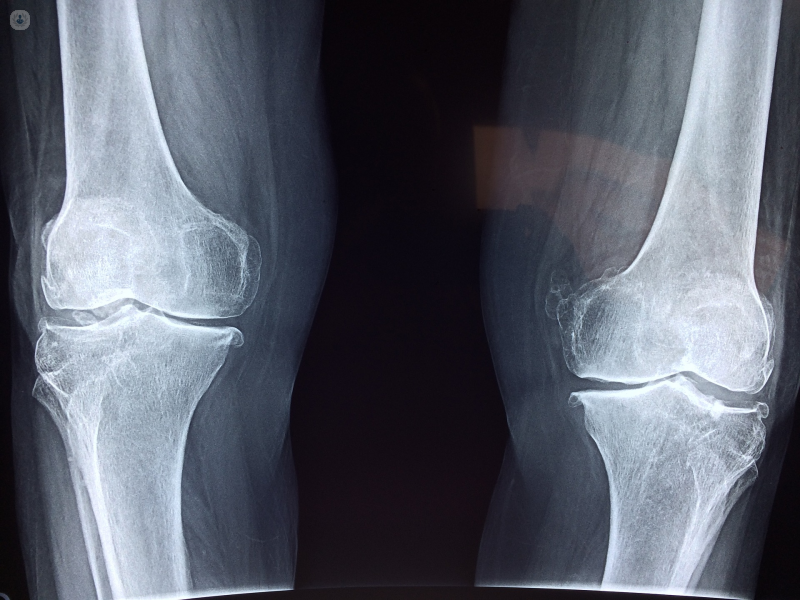Bone cancer
What are bone tumours?
Bone tumours are new bone tissue growths that develop due to progressive cell multiplication. There are two types of bone tumour:
- Bone tumours that start in the bone may be benign or malignant, depending on if they progress or stabilise.
- Benign tumours are made of normal cell tissue, they grow slowly and don’t invade neighbouring structures.
- Malignant tumours are made of cells different to normal tissue, they grow quickly, invade neighbouring structures, and can spread by metastases.
- Bone tumours that start in other organs and spread into the bone are known as bone metastases.

Although bone tumours are more common in the legs, they can affect any bone in the body.
What are the symptoms?
In terms of symptoms, the pain may not be too intense and be localised. When symptoms such as weight loss, asthenia, or fever appear, that’s when the specialist will start to suspect a malignant tumour. Patients who have advanced Ewing sarcoma may also have a fever and general malaise.
What causes bone tumours?
Rapid and disorganised cell growth is what causes these tumours. Therefore, knowing the causes for the growth can help identify the problem. Presently, a lot of progress has been made in identifying the origin of a tumour and experts are able to pinpoint the role of toxins, genetic disorders, viruses, and other aspects; but there is still a long way to go. Ultimately, the reason that bone tumours form remains unknown. They are often in fast-growing areas of the bone. Possible causes include:
- Genetic hereditary abnormalities
- Radiation
- Injury In most cases, no specific cause is found.
How can they be prevented?
It is presently unknown how bone tumours can be prevented. There are no known factors that may encourage them to develop, and they haven’t been associated with different diseases.
What is the treatment?
Treatment for bone tumours will depend on the severity of the symptoms, although surgery is the main type of treatment for most tumours and it may be used alongside chemotherapy and radiotherapy. Treatment for benign bone tumours is surgically removing them. In some cases this is not done, instead, regular check-ups are carried out to ensure that a tumour is stable and not growing.
Malignant bone tumours and metastases should be treated by a team of coordinated specialists: an oncologist, a radiotherapist, a pain management specialist, and the traumatologist/orthopaedist.









